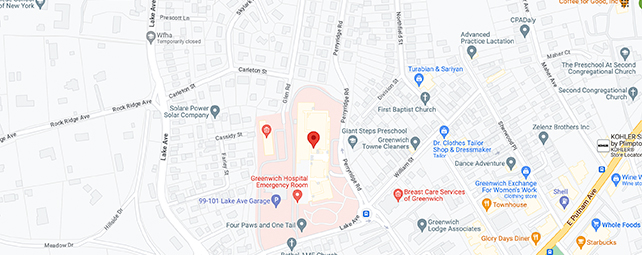
As one goes through the process of preparing for, and having a bariatric procedure, a huge amount of information is thrown at you. (I should know as I am guilty of providing vast amounts of pre- and post-op nutritional information in a relatively short time period.) While post-op VIRTUAL visits, phone calls, and group attendance are strongly encouraged, the possibility exists that an important bit of information will be misinterpreted, forgotten, never heard (for one reason or another) or incorrectly translated by a well-meaning friend or acquaintance. Here is a list of falsehoods or misinterpretations that have been reported in my office on more than one occasion. Sadly, such misinterpretations may have needlessly caused a patient frustration, obstructed healthy weight loss and/or prevented them from reaching or maintaining their goals. If you have taken a “FALL,” it is never too late to get back on track.

“I only need to take vitamins and supplements for the first few months after my surgery or until my energy returns.”
To prevent any vitamin or mineral deficiencies, supplementation is recommended for your life time unless otherwise stated by your surgeon, physician, or dietitian.

“If I am losing weight quickly, it means my diet is perfect.”
That is sometimes the case but if protein intake is not sufficient, it can also mean that you are losing fat and muscle in similar proportions which can be quite dangerous. If you know your protein intake is adequate (@ 80 grams/day), even if weight loss slows down, you can rest assured that you are maximizing fat loss and sparing your muscle or lean body mass.

“I can totally eliminate protein shakes as soon as I am eating solid protein.”
Too many patients jump the gun and eliminate protein shakes between meals before they are sure that their protein intake at meals (ideally 14-21 grams/meal) is adequate. Many of my very successful patients continue to have a daily mid-afternoon or evening protein shake even at 4+ years post-op.

“If I am losing weight without exercise, there is no need to start exercising or I can wait until I stop losing weight to start.”
Rapid and excessive weight loss without some cardio and some strength training exercise is a very risky proposition. Lack of structured cardio exercise as part of your new lifestyle increases your chances of regaining weight even if you have reached your weight goal without it. Lack of light strength training (more reps with lighter weights) increases your chance of having excess hanging skin (like “aprons” or “bat wings”). So move as you lose!

“If I don’t feel thirsty, I don’t really need to drink as much fluid as was recommended.”
You probably know that by the time you feel thirsty, you are already dehydrated. For bariatric patients this is extremely troublesome because you can’t (and should not) chug a large volume of liquid to rehydrate yourself quickly. It may take a few hours to rehydrate yourself by mouth and before then you might have needed to take emergency action (like going to the ER for rehydration by IV).

“For bariatric success I am going to have to follow a bland low fat and low salt diet for the rest of my life.”
After your procedure, please try to wipe the slate (of old diet behaviors) clean. While it is true that there is limited room for vegetables, fruit and starches after your procedure, your meals should consist of small portions of high quality very flavorful food. Flavorful food does not have to be super salty or fatty but it should satisfy your senses. If you are not satisfied by the smell, taste and texture of your food there is a greater risk of being “head hungry” shortly after your meal. This can lead to some bad grazing habits and a downward dietary spiral.

“If I experience any hair loss at 2-3 months post-op, I must be doing something terribly wrong with my diet.”
While unfair at times, this is not necessarily the case. Many post-op patients experience hair loss at 2-3 months despite very good protein intake and vitamin compliance strictly due to the stress that your procedure has holistically imposed on your body. If protein intake and supplementation is excellent, hair will generally grow in nice and full within a few weeks. If protein intake and supplementation are inadequate or sporadic you may not see new hair growth until it improves. Biotin is some times recommended if hair growth seems inadequate despite dietary compliancy.

“A pattern of small frequent feedings (SFFs) is the best way to eat after bariatric surgery.”
This is a very common misconception but too often, over time, SFFs/snacking/grazing = too many calories per day for consistent weight loss. Traditional snack foods like chips and dip, peanut butter crackers, crackers and cheese, etc. may go down easily but are inappropriate (low-protein, calorie-dense) meal or snack choices for bariatric patients. To clarify further, protein shakes or high-protein Greek yogurts are okay and need not be considered “snacks” as they are filling very important protein voids. Finally, SFFs can be an obstacle to meeting daily hydration goals as they can prevent adequate between meal sipping if you are waiting your requisite 30 minutes between liquids & solids.

“I won’t really stretch my pouch or sleeve by eating and drinking at the same time.”
Yes, over time you really will……… A little sip here and there may be fine but you are much better off focusing on moist proteins (prepared as stews, in crock pots, with light gravies, etc.) than on having to drink with your meal to prevent choking or gagging.

“A couple of days without meeting my protein goals won’t make a difference.”
An off day now and then countered by an extra shake the following day may be fine but a few low protein days per week could in fact upset your metabolism, rate of weight loss and (eventually) body composition. Try to make it your “protein policy” to have a shake if you can’t manage a decent protein containing meal, but try not to skip the protein altogether.

“A little bit of sugar won’t hurt.”
For gastric bypass patients only: While the “problem causing” amount of sugar can vary a bit from one bypass patient to the next, all patients agree that an episode of “dumping syndrome” with its accompanying sweats, palpitations, dizziness, cramps & watery diarrhea is simply not worth it. If, on the other hand, you are one of the few bypass patients that can eat some sugar without experiencing any horrific side-effects, do you really want to find that out? It seems to me that for committed bypass patients either way, sugar hurts.

“If you are not sure about something pre-or post-op, either call, visit, or e-mail your surgeon, P.A., nutritionist, therapist or trainer.”
NANCY MURPHY, RDN CDE
















